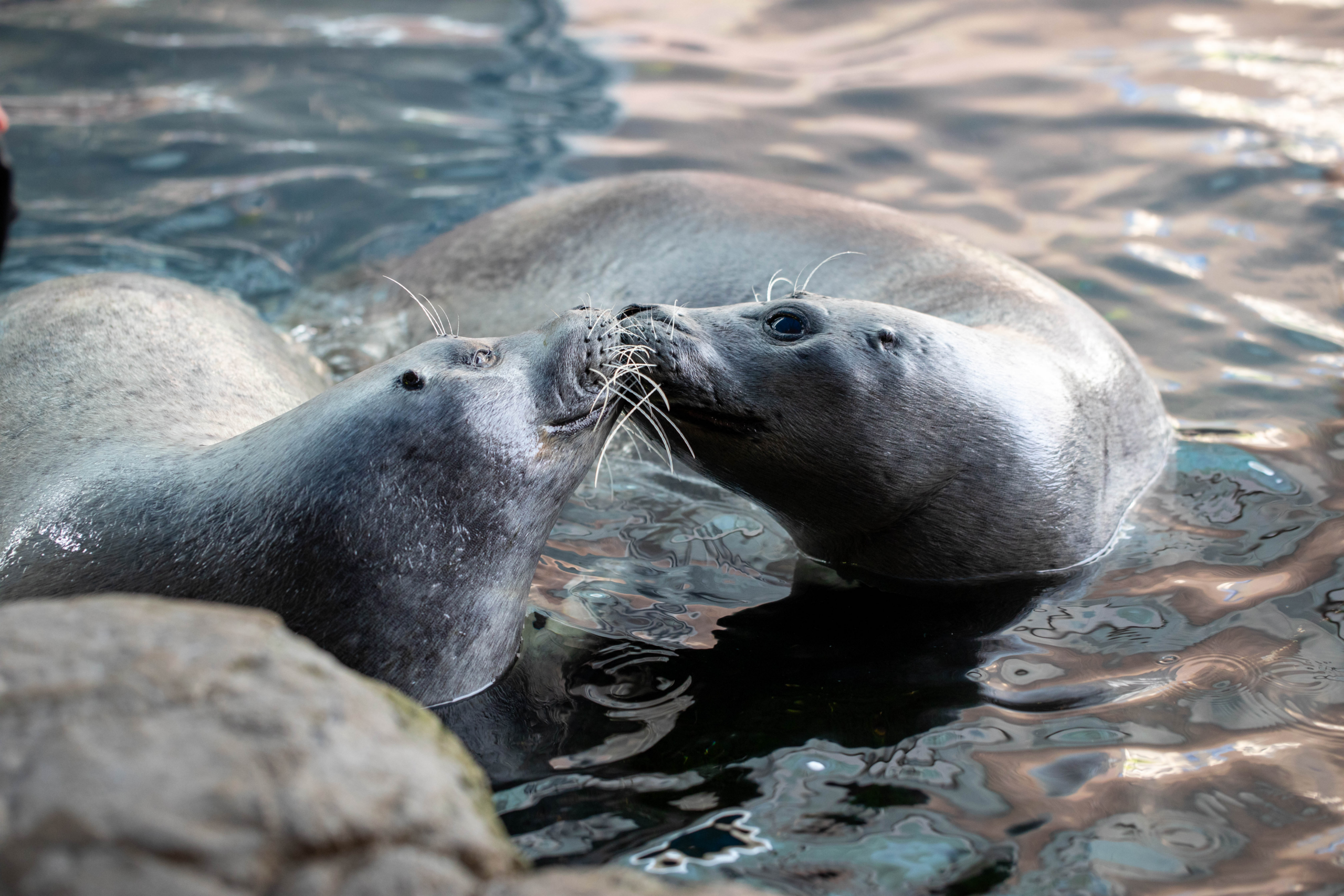Please note: Due to the forecasted winter storm, the New England Aquarium will be closed on Monday, February 23.

BOSTON, MASS. (May 28, 2025) – The New England Aquarium is celebrating two Atlantic harbor seals turning 40 this spring, an especially big milestone for animals who have far exceeded their life expectancy.
**PHOTOS AND VIDEO AVAILABLE HERE WITH CREDIT TO NEW ENGLAND AQUARIUM**
The Aquarium threw a birthday party for harbor seals “Amelia” and “Trumpet” on Wednesday, complete with handmade cards, a “cake” made of ice jello and fish, and special enrichment activities. A small crowd gathered to sing “Happy Birthday” and watch as Aquarium trainers engaged with the seals and celebrated their big day.
Amelia, born on May 28, 1985, and Trumpet, whose birthday is June 7, 1985, were born and raised at the New England Aquarium and have become favorites of guests and passersby over the years, thanks to their inquisitive nature and open-air exhibit just outside the Aquarium’s entrance on Central Wharf. The two have surpassed harbor seals’ average lifespan of 25 years in the wild, thanks to the Aquarium’s world-class medical care and husbandry work.
“We are so excited to be celebrating the birthdays of two of our geriatric seals. Their longevity is a true testament to the New England Aquarium’s commitment to prioritizing the highest level of animal wellbeing and veterinary care, along with our staff’s dedication to the animals,” said Kristen McMahon, the Aquarium’s Curator of Pinnipeds and Penguins.
Trumpet and Amelia are half-sisters, born to father “Hoover” (known as “the talking seal”), and live in their 42,000-gallen habitat with Trumpet’s two children, Cayenne (age 31) and Chacoda (age 29), and Amelia’s brother, Reggae (age 31). Amelia enjoys bottling, which is when seals float in the water with their nose sticking straight up, and she can usually be found sleeping in unusual positions. Trumpet loves squid, painting on a canvas, and sleeping underwater. (More information on the seals can be found on neaq.org.)
“For the past 40 years, these amazing ladies have enthralled anyone who happened to walk by their exhibit. At any time of day or night, you can see visitors walking by the exhibit to see what the harbor seals are up to. The seals’ personalities and the unique design of the exhibit draw people in to view these gregarious animals every day,” said Assistant Curator Patty Leonard, who has worked with the animals for 20 years.
Aquarium trainers work closely with each individual harbor seal to build relationships and train each animal to participate in their own healthcare, including toothbrushing, eye checks, and regular blood draws. The seals give trainers and scientists the opportunity to engage in research studies, which provide insights into the larger population. The harbor seals at the Aquarium also serve as ambassadors for their species by providing education to guests about actions they can take to conserve and protect our blue planet.
Since 1972, the Marine Mammal Protection Act has protected all marine mammals in the wild, which has greatly benefited Atlantic harbor seals, with the local population rebounding after successful efforts to reduce pollution in Boston Harbor. However, climate change issues still loom for the species, as rising ocean temperatures reduce the abundance of their food resources in the wild.
MEDIA CONTACT: Pam Bechtold Snyder—617-686-5068; psnyder@neaq.org
